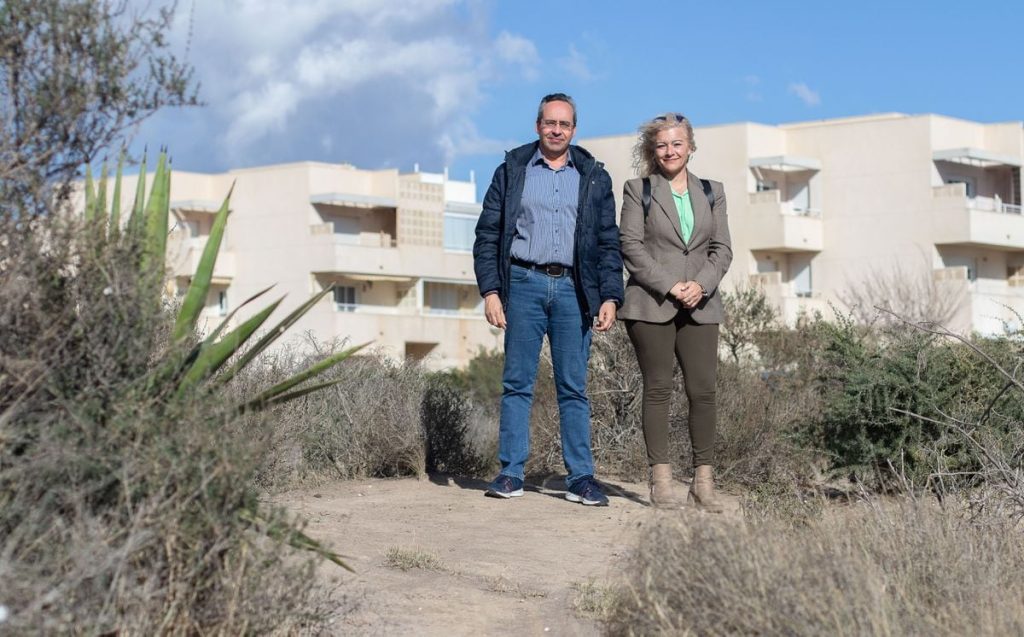Seville resident Rocío Quero bought her home in El Toyo because of its location. This neighborhood is located 15 minutes from the city of Almería, as well as Cabo de Gata, and another 15 minutes from her work in Níjar. The beach is one of its main attractions, along with its natural surroundings, where Quero enjoys bike rides and walks with her dogs. This summer, it is expected that more than 30,000 people per day will attend the electronic music festival Dreambeach Festival, which will take place from August 1st to 4th. After nine years in Cuevas de Almanzora, the organizers have decided to change the location for their tenth anniversary, headlined by David Guetta.
The El Toyo residential area was built to accommodate athletes participating in the 2005 Mediterranean Games in Almería. When the competition ended, a handful of families bought some of these homes and moved in. They were built by Fadesa, which later went bankrupt, another example of the consequences of the real estate crisis. The area suffered and took time to recover, but today it is home to about 10,000 people when including the residents of Retamar, near the hospital. It also has several four and five-star hotels, a golf course, and a large sports complex. During Holy Week, rain and strong winds have hit this corner of Almería, full of tourists expecting a different climate. Excavators and tractors have started preparing the 350,000 square meter concert site.
Residents have mobilized against the Dreambeach Festival in El Toyo. They have engaged in various activities to protest, including meeting with politicians, distributing information, and submitting complaints to the European Parliament. They are concerned about the impact the event will have on the environment, security, and noise levels in their area. They worry about the proximity of the event to protected wildlife areas and the potential increase in traffic congestion during the festival. Residents fear the festival will disrupt their lives and are determined to fight against it.
The presentation of the Dreambeach Festival was hailed by local authorities as a huge economic opportunity for the city. The mayor of Almería and the delegate of the Junta de Andalucía emphasized the positive impact the event would have on the local economy, citing job creation and revenue generated during previous editions. Despite residents’ objections, municipal sources state that the complaints of a small group of people are not enough to cancel the event. The organizers are working to obtain the necessary permits to ensure that the festival complies with regulations, including noise levels and environmental impact.
The festival organizers claim that their technical team is conducting an acoustic study to ensure that nearby homes are not affected by the sound. They also state that they will respect the protected areas and follow guidelines to preserve the natural environment. However, the organizers have already faced allegations of environmental violations during the initial preparation of the concert site. The regional government has opened a sanctioning proceeding against the company for improper disposal of vegetation and dust pollution during soil excavation.
Despite facing challenges and opposition from residents, the organizers of the Dreambeach Festival are determined to proceed with the event. Residents like Rocío Quero and Javier Cádiz remain optimistic and are prepared to take legal action if necessary to protect their community and environment. The conflict between residents and festival organizers highlights the ongoing debate over the balance between economic development and environmental protection in El Toyo. Residents continue to voice their concerns and advocate for their rights as the festival date approaches.














